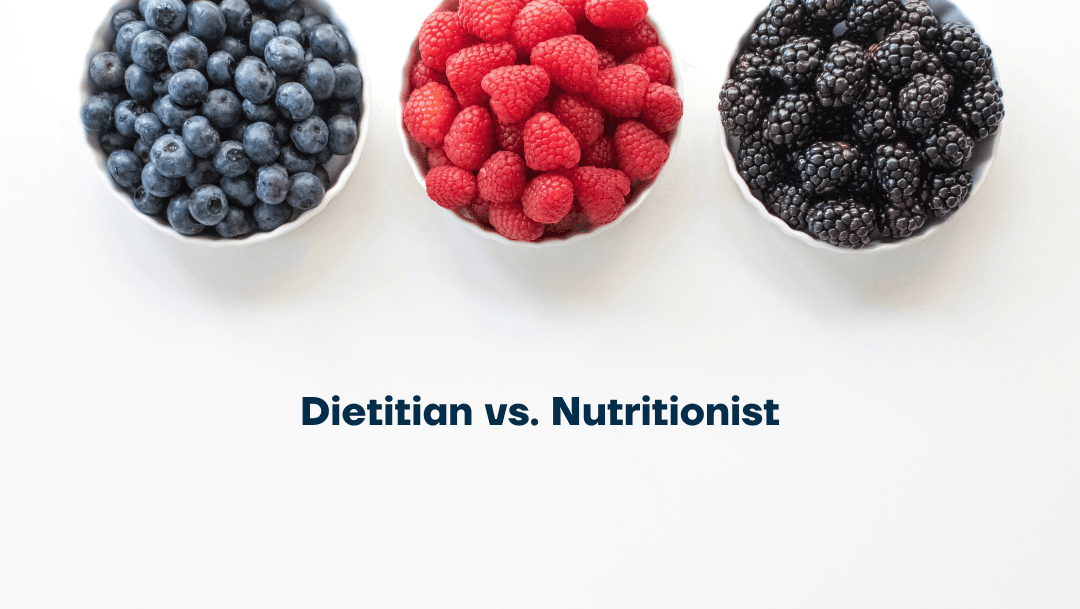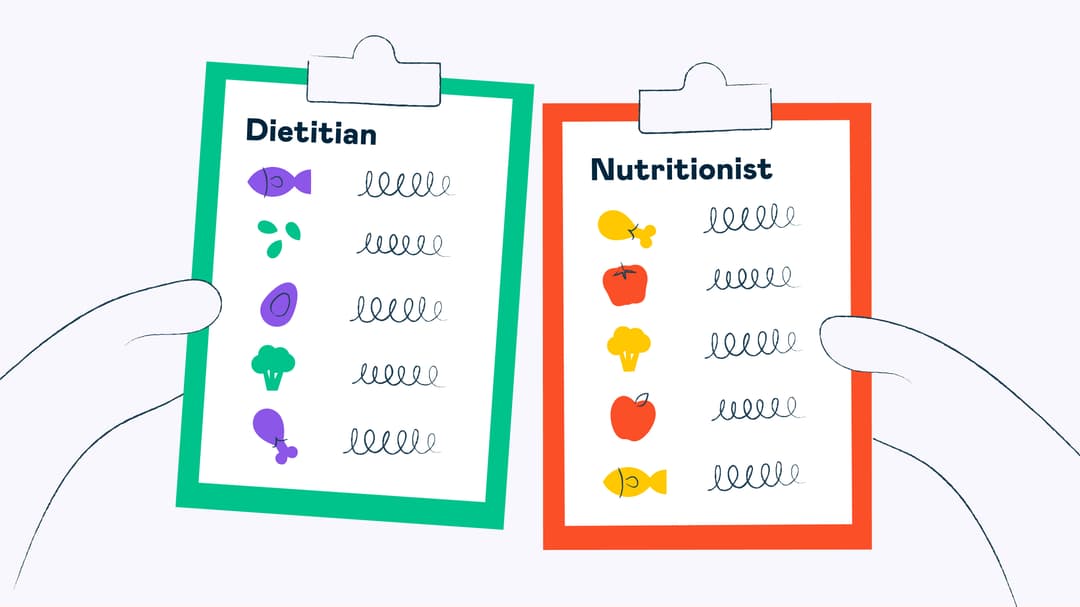All Categories
Featured
Table of Contents
-1
In the USA and numerous other countries, a dietitian is a board-certified food and nourishment professional. They are highly enlightened in the field of nourishment and dietetics the scientific research of food, nutrition, and their influence on human wellness. Via considerable training, dietitians get the know-how to supply evidence-based medical nutrition treatment and nutritional therapy tailored to satisfy an individual's needs.
-1To make clear, the qualifications of RD and RDN are interchangeable. Nevertheless, RDN is a much more current designation. Dietitians can choose which credential they would rather make use of. To make these credentials dietitians-to-be need to first earn a bachelor's level or equal debts from an accredited program at an university or university. Usually, this needs an undergraduate scientific research degree, consisting of programs in biology, microbiology, organic and not natural chemistry, biochemistry and biology, makeup, and physiology, along with more specific nourishment coursework.
Corporate Nutritionist
-1This allows them to evaluate severe needs, prioritizing serious conditions. Inpatient and outpatient dietitians also supply nutrition education and learning to people with specialized demands, such as those freshly out of surgical treatment, in cancer cells treatment, or detected with chronic diseases like diabetes or kidney condition. In the outpatient setup, they provide much more comprehensive dietary counseling functioning in the direction of a nutrition-oriented goal.
-1They can likewise support for public plans with a focus on nourishment, food, and wellness concerns. Research dietitians generally operate in research study medical facilities, companies, or universities. They run within a research group headed by a key private investigator and perform nutrition-focused interventions. As soon as dietitians have actually made their credentials and are operating in the field, they can take place to concentrate on a certain subcategory, such as pediatrics or sports dietetics.
-1Others might work as health and nutrition experts in media or as public speakers (Functional Medicine Dietitian). Dietitians are certified to take care of nutrition therapy throughout a period of severe and persistent problems.
Dietitian And Personal Trainer – Westminster
-1In lots of states, such as Alaska, Florida, Illinois, Maryland, Massachusetts, and Pennsylvania, RDs and CNSs are provided the same state license, generally called a Qualified Dietitian Nutritional Expert (LDN) certificate. In states that do not regulate the use of this term, anyone with a rate of interest in diet regimen or nutrition might call themselves a nutritionist.
-1However, due to the fact that uncredentialed nutritionists usually do not have the proficiency and training for clinical nourishment treatment and nourishment therapy, following their guidance might be thought about damaging (). Prior to speaking with a nutritionist, you may desire to inspect whether your state controls that might use this title. In the united state states that don't manage the term, no degrees or credentials are needed to be a nutritionist.

-1
In states that do mandate licensure, the CNS or RD credential may needed. Those with CNS credentials are health and wellness specialists like nurses or doctors with advanced wellness levels that have actually sought out extra coursework, completed monitored technique hours, and passed an exam managed by the Board for Certification of Nutrition Specialists.
-1While several of these techniques might have durable clinical backing, others might not. Providing nourishment recommendations without the appropriate knowledge and training can be damaging, specifically when counseling those with health conditions. As such, if you are taking into consideration consulting a nutritional expert, you might wish to ask if they are a CNS or have state licensure or accreditation, or an additional credential.
Clinical Dietitian
-1A number of states specifically control this term. Furthermore, nutritionists might go after an advanced CNS qualification.
-1It can be challenging to assist people make genuine, lasting adjustments in their lives. Both dietitians and nutritional experts supply a range of nutrition-based services to customers.
-1They need to have completed some degree of education in their area. They are also required to have actually completed approximately a year of monitored work, functioning within a directed program at a healthcare center, catering business, or neighborhood body. Dietitians have far higher expectations put on their capacities and level of professionalism and reliability.
-1This means that there is no body that supervises their qualifications and no particularly rigid standards that nutritionists need to comply with in order to be able to practice. Dietitians, on the various other hand, are registered with nationally acknowledged bodies, such as the Dietitians Association of Australia. They need to follow the National Proficiency Standards for Dietitians.
Registered Nutritionist ( Stirling)

-1
Nonetheless, you can practice as a nutritionist without the exact same degree of certification as a dietitian. Nutritional expert courses can differ in length and top quality, with some as brief as six weeks and covering much much less material than a dietetics course. Depending upon your education service provider, you can get a considerable quantity of understanding via studying an easy nutrition program; nevertheless it is essential to investigate the course material before starting.
-1This can consist of participating in market seminars or checking out market magazines. Nutritionists, on the various other hand, typically gain their qualifications in order to supplement other certifications and supply far better guidance to their customers. Nutritional experts can get work in a wide variety of areas, including public health and wellness recommendations, suggestions for people, and collaborating with exclusive organisations.
-1Nutritionists can collaborate with showing off organisations, gyms, institutions and suggest media electrical outlets on basic terms and correct usage of terms. Commonly, people will certainly look for the services of a nutritional expert to aid them in getting right into form. Dietitians can function in a lot of the very same roles as nutritionists. With a higher level of certification, they can quickly go into a function that a nutritional expert would certainly hold, given they are otherwise equal.
Certified Dietitian ( Stirling)
-1Dietitians frequently work with even more clinically sensitive customers. Since of the high degree of understanding needed to supply services to these individuals, just approved dietitians are allowed to offer care.
-1In Australia there is a difference between a dietitian and various other nutritional health and wellness providers including nutritional experts. All dietitians are nutritionists, however nutritionists without a dietetics credentials can not call themselves a dietitian. While there are similarities in between a dietitian and nutritional expert there are differences in certifications and regulation. The dietetic profession is regulated and meets strict criteria as laid out by the National Partnership of Self Regulating Health And Wellness Professions (NASRHP).
-1Dietitians with the Accredited Practising Dietitian (APD) credential commit to ongoing training and education throughout their occupations. As an occupation, nutritional experts are not managed in Australia under NASRHP or licensed under a single governing body.
Certified Sports Nutritionist – Westminster
-1If you have a persistent health and wellness condition and a care plan from your General practitioner, you might be able to declare a Medicare discount when you see an APD. The main function of individuals working in the profession of dietetics is personified in this declaration: The career of dietetics contributes to the promo of health and wellness and the avoidance and therapy of disease by optimizing the nourishment of populations, communities and individuals. Vegetarian Nutritionist.
Table of Contents
Latest Posts
Caylah Batt (Shelley 6148)
Home 2
Our Values
More
Latest Posts
Caylah Batt (Shelley 6148)
Home 2
Our Values